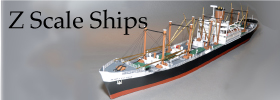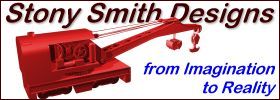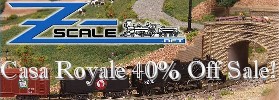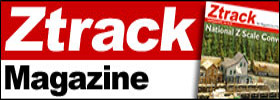Micro-Trains Line Dormitory Camp Cars #2 Build
I enjoy building laser kits, but have never attempted to document a build. This is my first try at documenting a laser-kit build. But first, remember I am not a professional and I may deviate from the original instructions, even worse… make mistake(s).
After opening the package, I laid out the pieces. I am not building the kits as logging cars, but plan to decorate them as MOW cars. So my first step is to use my Prismacolor pens to paint the outset sides. I have French Grey 20% and Cool Grey 50% color pens, the percentages represent the darkness (opaqueness) of the color. I used the broad end of the French Grey 20% to paint a base color. I am not worried about uniform painting, this is a MOW car.
Now we get to business with assembly. The 3-piece chassis assembly is simple since they are “peel-and-stick”. I have one chassis assembled and the other with three braces and a wall glued to it. My preference is using Tacky Glue, but any wood glue will work. And to apply the glue I use a toothpick or the safety pin, sometimes it is easier to hold the safety pin. The emery board is used to clean excess from the parts and any dried glue from the toothpick/safety pin.
You can see the cars are taking shape, and you can see how the MOW cars are developing their own unique personality. The sides are glued to the chassis and this completes Page #1 instructions. This also completes assembly of the large pieces.
This next photo displays the completed instructions Page #2 and Page #3. This part is the time consuming portion of the build. Applying the “peel-and-stick” windows, door trim, and side strips took some time. Using tweezers, I tried to lightly place the piece onto the area of coverage, then used the toothpick to set the piece. One comment about the “peel-and-stick” is once it is on, it is firmly on.
Note: If I every build another logging car kit, I will assemble the window frames, windows, and door strips first before assembling the sides. It would have been easier to apply the window frames, windows, and the door strips before the wall is glued to the chassis.
Now you can see the cars really developing. Oh, and there is an extra window frame, window, and strips for a future kit bash.
Now comes the car roofing. Original instructions stated to glue the roof parts on to the frame. Knowing that “I” have a problem with lining up pre-glued pieces with “area coverage”, I took a different assembly route. I used the pre-glued roof side and applied that to the car frame, which I did not have to wait for it to dry or set. Some of the roof pieces fit in a specific manner, so be aware of that. This step also completes the instructions for Page #4.
Here you can see the kit pieces are missing from their original locations. The MOW cars are definitely looking good. Ok. To glue the roofing tarp on, I used Elmer’s “Washable School Glue”. Elmer’s produces several formulas of their white glue, and this type is thin and very manageable, it gives me extra time to align roofing pieces. The stacks are in and this completes not only Page #5 instructions but the complete instruction pamphlet.
The stacks have been painted with Polly Scale Tarnished Black. I started to use some chalks on the roofing. I believe I used a few shades of gray, black, brown, and red around the stacks. I applied my custom decals, and it looks my D&RGW MOW train project is turning out fantastic. Once the decals are dried I will weather the cars more with chalks, then seal with some Dullcoat.
These car kits have been out for some time, it has not been until recently that I picked up a few, and set some time aside to build them. I can see many different variations to building/decorating these cars. Once I get the final finish, I will post those photos.

















Comments powered by CComment